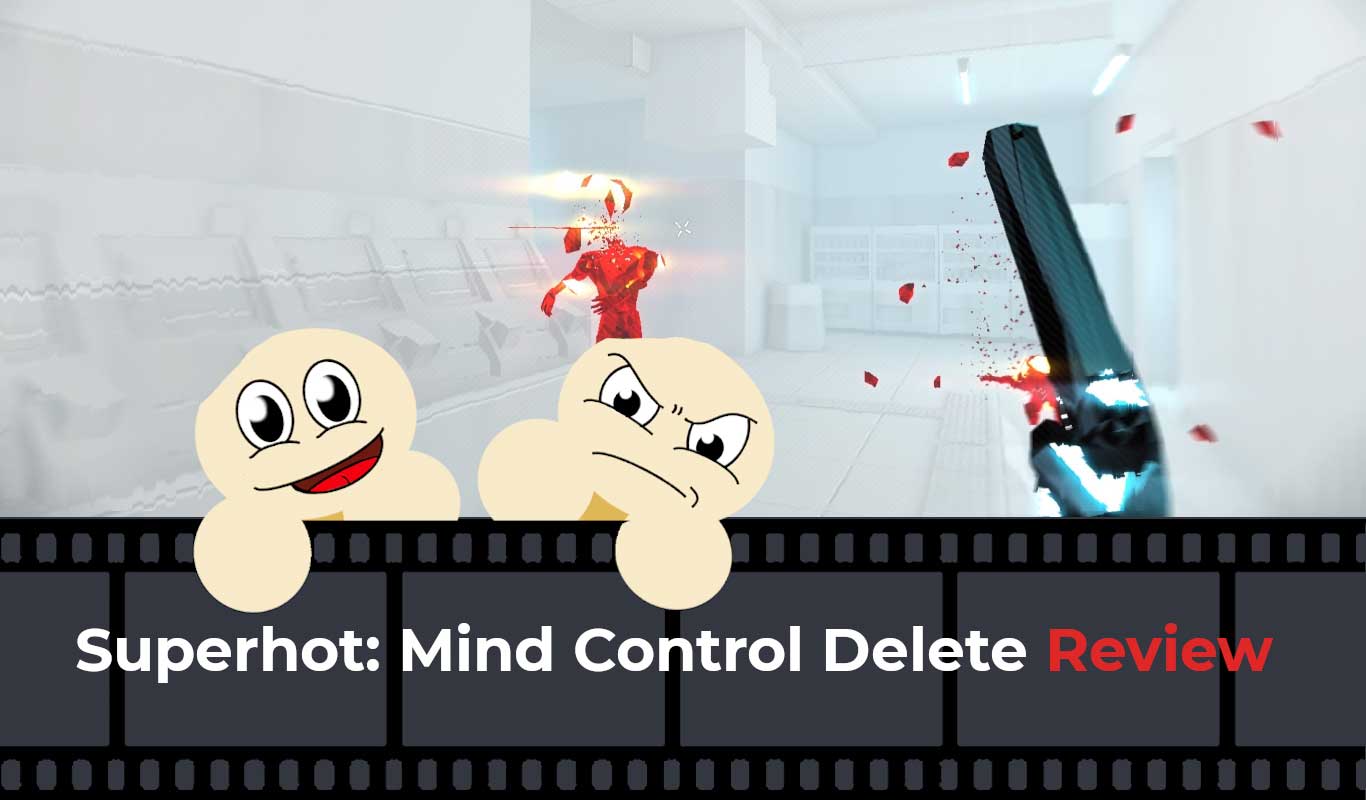Do I Want More?
Introduction
It was a cold winter’s night, where I sat on my balcony and gazed into the Maltese starless sky, only to realise that I needed something more. I combed through the steam and PSN libraries only to find Superhot: Mind Control Delete (PS4 version), a standalone expansion of the original Superhot released back in 2016. The game piqued my interest, as I had played the VR version during a comic con and fell in love with the ingenious mechanics that set it apart from any other first-person VR shooter in the market.
I tried it out and played through the first few levels, navigating through the winding corridors while carefully dodging enemy attacks in bullet time, only to quickly win the game within the first five minutes.
Something feels off. I thought as the credits began to roll. Where are the names of those who contributed? There isn’t even a producer or director, just lines of meaningless text. I used the touchpad to scroll down the credits until the end, only to find a button saying MORE waiting for me. I clicked it! I wanted more!
Graphics and Presentation
Graphically, this game is minimalistic to its core. Its clean white textureless environments make the stages feel somewhat empty and sterile. The levels all felt reminiscent of VR training from the older Metal Gear Solid games, but they lack the same visually soothing appeal. The white game environments can be strenuous on the eyes and have actually given me headaches on several occasions.
In contrast to the cold backgrounds, the enemies stick out like sore thumbs with their bright red hues and crystalline appearance (very similar to its VR predecessor). The equipment scattered across the levels also follows suit but don a greyish blue colour.
There are certain areas where the environment distorts, like as if it is fragmenting in and out of existence. I am uncertain whether the game incorporates shaders to warp its world or the developers manually move the geometry. Either way, this approach to the stages can be disorienting.
Gameplay and Mechanics
Superhot: Mind Control Delete is a first-person rogue-like version of the original game where the player must navigate through stages and eliminate any and all enemies that they happen to come across in order to proceed.
The game can be summed up with a single sentence. Everything moves when you move. Time slows down to a slither when the player stops moving, halting enemies in their positions with bullets travelling at a snail’s pace.
These rogue-like stages form part of a set with their own recurring gameplay mechanic. For example, there could be one set where the player must avoid the wall mines sprinkled across the levels while focusing on exterminating enemies in the process. While the locations themselves can eventually become stale, the mechanics are enough to keep everything fresh.
Superhot: Mind Control Delete’s sheer focus on gameplay makes it one of the best games to test one’s mettle. Every level exists to challenge the player’s twitch speed along with their spontaneous puzzle-solving skills.
The more you play, the harder it gets, as Superhot: Mind Control Delete’s stages become increasingly more challenging as you progress further. Enemies can explode, can only be shot in specific weak points, gain powers, or just become invincible altogether.
The difficulty balances itself out with the use of power-ups and abilities called hacks, which give the player an edge in battle. Being the natural born weeb that I am, I stuck to more sword-oriented hacks. Deflecting bullets with my sword and using my foes as human-shaped dartboards for my katana.
Overall, the gameplay feels satisfying as regular items can become throwable weapons, and the time-stop mechanic makes it feel like you are dodging bullets in the Matrix. Finally, the fast forward replay at the end of the level makes your experience feel like a budget John Wick movie.
Conclusion
Superhot: Mind Control Delete is a bit of a mixed bag. While I love the puzzle FPS gameplay mechanics, the overall package gets bogged down by its simplistic and sometimes disorienting aesthetic. If you happen to be a fan of first-person shooters with a bit of twist like the Portal or Mirror’s Edge franchises, then I think this game will suit your palette of tastes as well.

